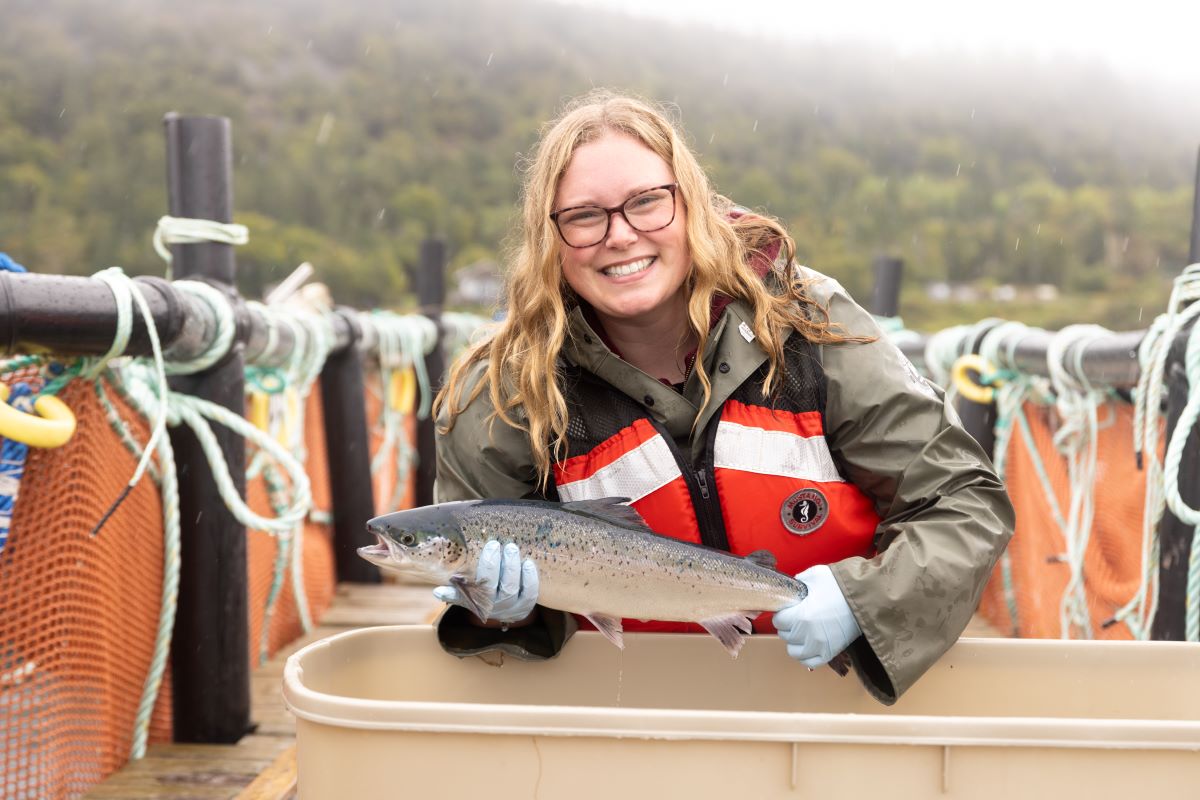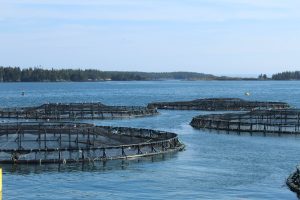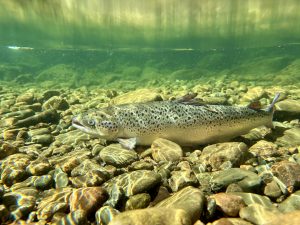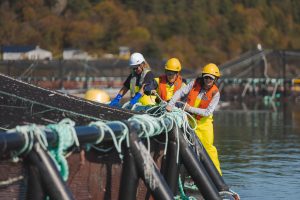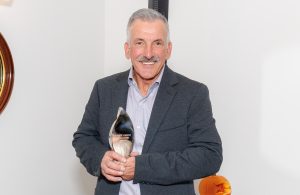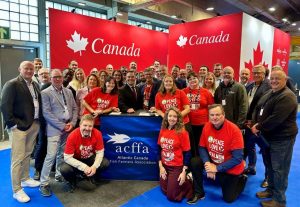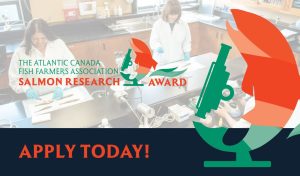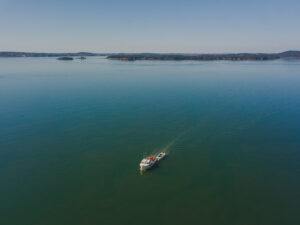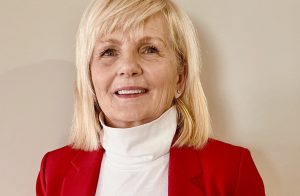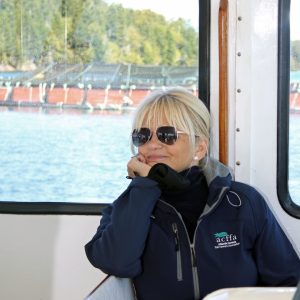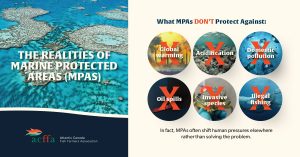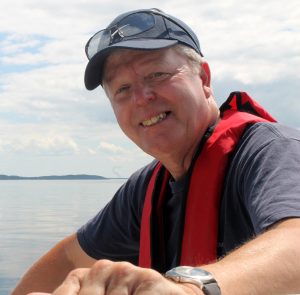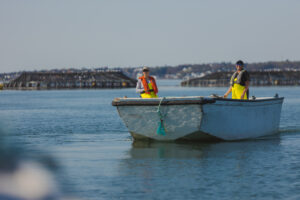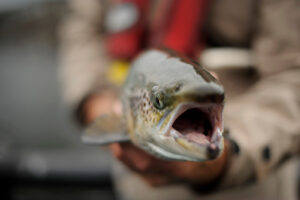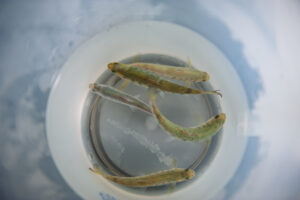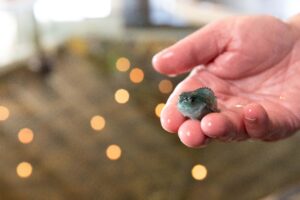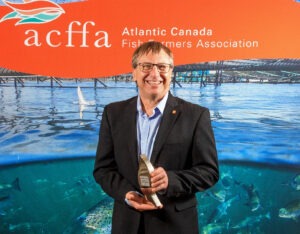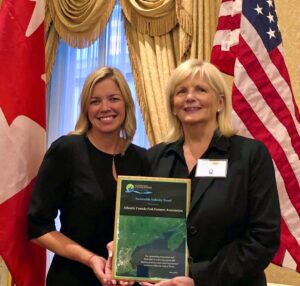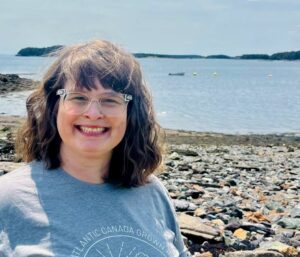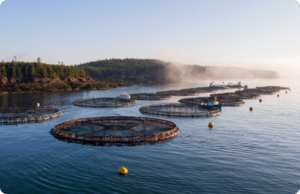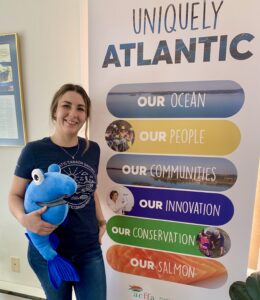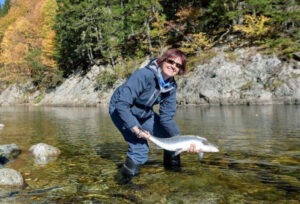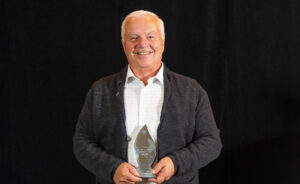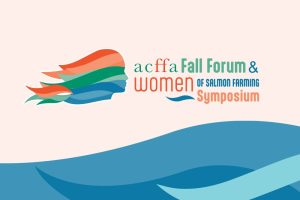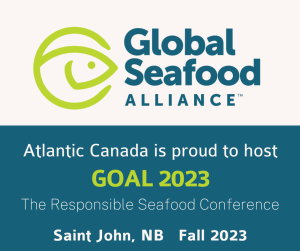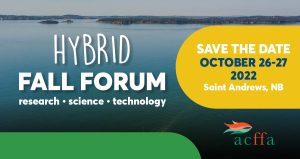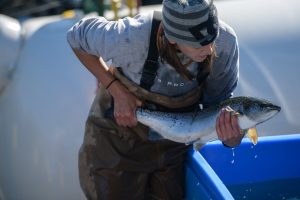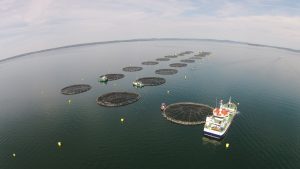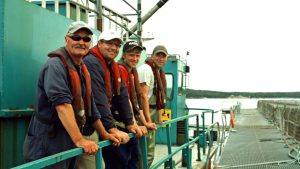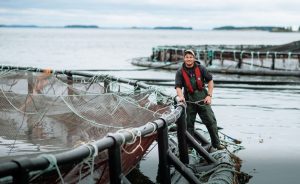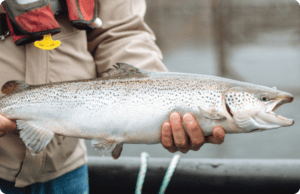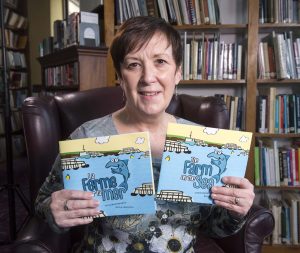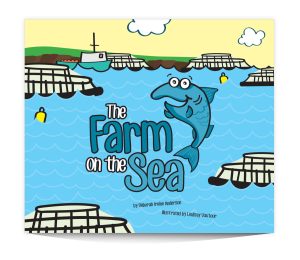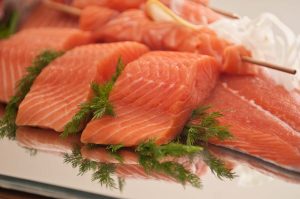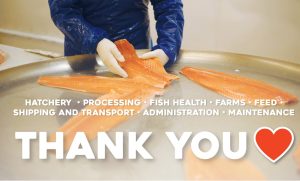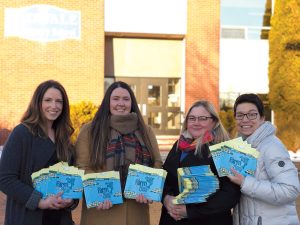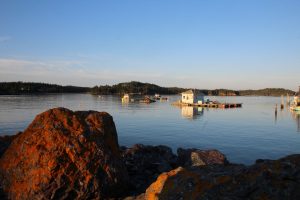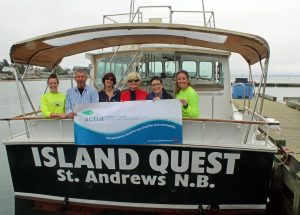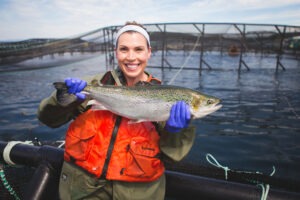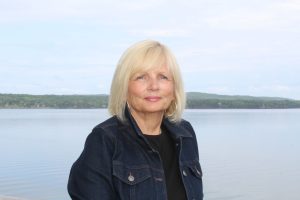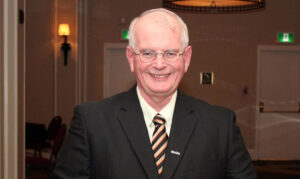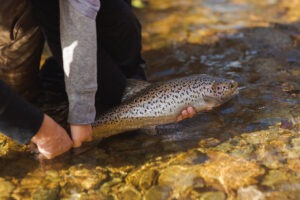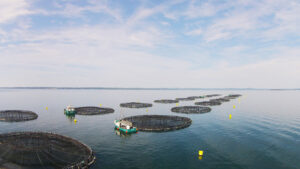Fundy Salmon Recovery is a revolutionary and globally recognized partnership between academia, First Nations, government and private industry that is making significant strides in the recovery of inner Bay of Fundy wild Atlantic salmon, which has been listed as an endangered Species since 2003. This program involves capturing young Atlantic salmon from the wild, rearing them on a dedicated marine farm site until maturity, and then releasing them back to native rivers to spawn naturally.
Now, with funding from the Atlantic Fisheries Fund, the Atlantic Canada Fish Farmers Association (ACFFA), the University of New Brunswick (UNB), and Fort Folly Habitat Recovery (FFHR) are conducting research designed to evaluate the efficacy of using wild-exposed salmon to restore Atlantic salmon populations in the Inner Bay of Fundy. Key activities include:
- Enhanced detection and monitoring systems in the Petitcodiac River and rivers in Fundy National Park to track adult salmon movement and distinguish between true wild returns and restoration program salmon.
- Genetic diversity testing and evaluation of epigenetic changes to better understand and protect salmon populations.
- Expanded in-river assessments to monitor spawning, juvenile production, and kelts, generating valuable new data to refine restoration strategies.
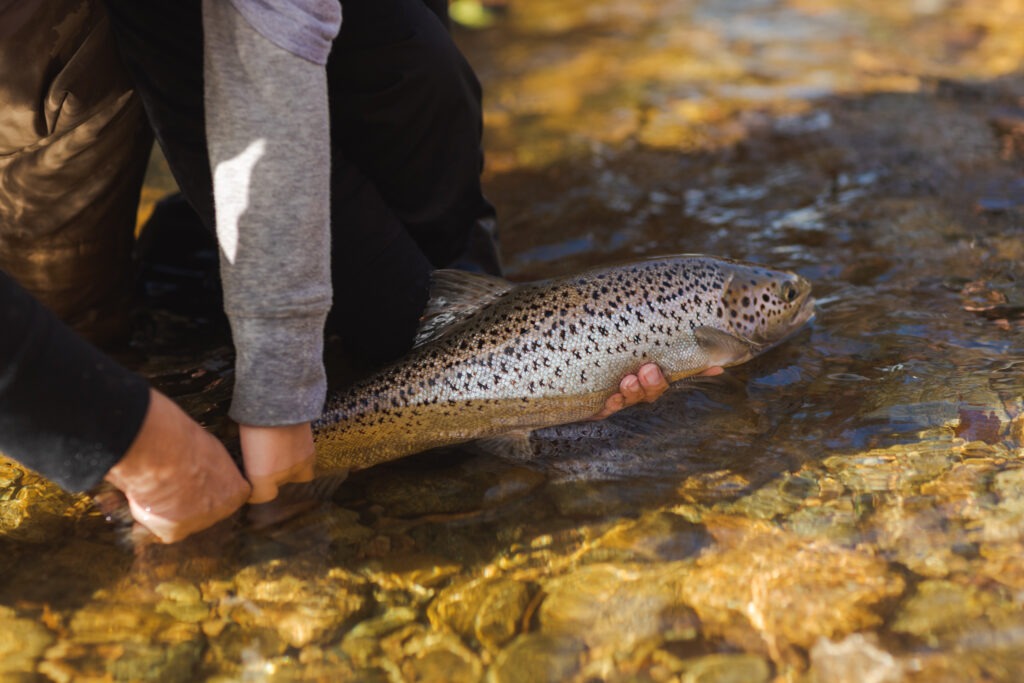
“This species’ survival depends on human intervention, innovative thinking, and the dedication of our project partners,” said Susan Farquharson, Executive Director of the Atlantic Canada Fish Farmers Association. “These activities are vital steps in informing efforts and refining our Atlantic salmon restoration strategies. The data gathered during this project will help us reach our goal to restore and preserve wild Atlantic salmon for future generations. We are grateful for the support from the Atlantic Fisheries Fund.”
“The recovery of this population of endangered Atlantic salmon is of critical importance, as they are deeply intertwined in the heritage and culture of the Mi’gmaq people. Their reintroduction to the Petitcodiac is not only about the return of a lost population, but about reclaiming and sharing our cultural identity, healing historical wounds, and promoting sustainable stewardship of our lands and waters.” Chief Rebecca Knockwood, Fort Folly First Nation.
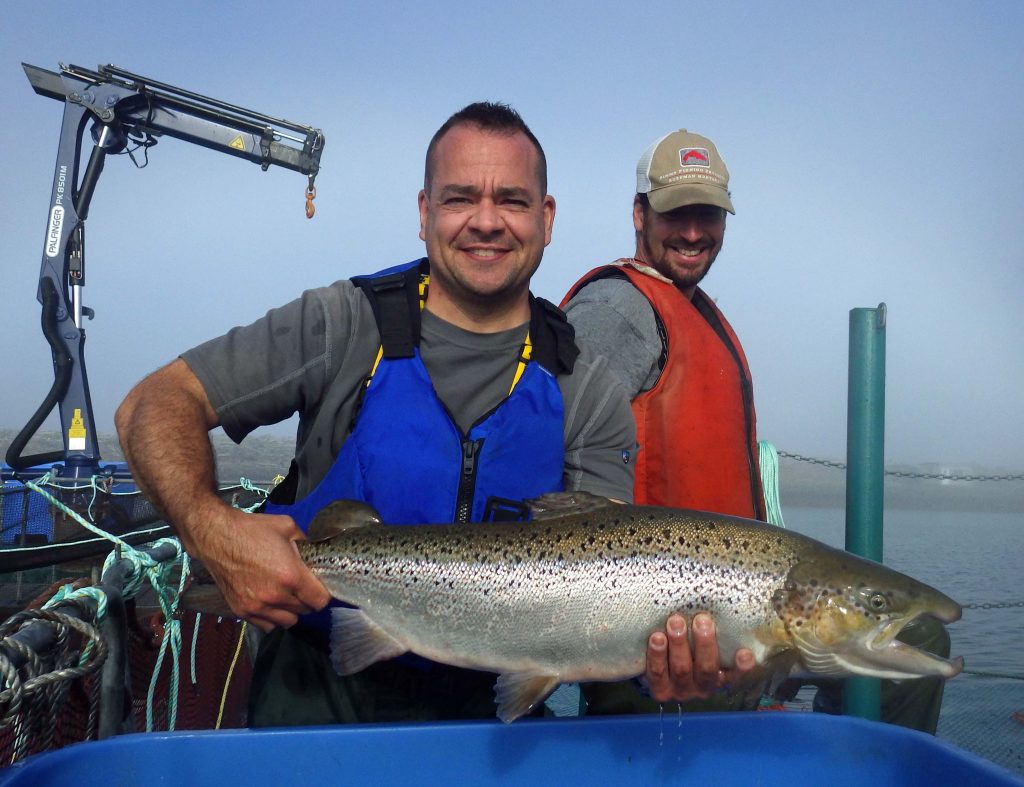
Dr. Kurt Samways, University of New Brunswick
“The Fundy Salmon Recovery model has changed the face of Atlantic Salmon restoration and has resulted in increased wild-hatched juvenile salmon production, increased number of adult salmon returning to spawn, and healthier, more productive rivers. This new research will help us continue to guide efforts to rebuild a lost population,” says Dr Kurt Samways, Associate Professor, University of New Brunswick.
The Atlantic Fisheries Fund contributed $921,744 to this project. The research will continue until March 2026, providing critical insights and tools to ensure the success of salmon recovery efforts. In addition to ACFFA, UNB and FFHR, partners in Fundy Salmon Recovery include Cooke Aquaculture, Parks Canada and the New Brunswick Department of Agriculture, Aquaculture and Fisheries.
To learn more about the Fundy Salmon Recovery project and all its partners, visit www.fundysalmonrecovery.com.
For more information, contact:
Susan Farquharson
Executive Director
Atlantic Canada Fish Farmers Association
Email: info@atlanticfishfarmers.com
Ph: 506-755-3526
